Mark Louden on Pennsylvania Dutch: The Story of an American Language (Interview & Book Giveaway) [Updated with Winner]
Mark Louden is a linguist, educator, and author of Pennsylvania Dutch: The Story of an American Language. Mark recently answered some questions on Pennsylvania Dutch. We’ve got that interview for you today, plus a chance to win a copy of his book (the contest has now ended – you can find the winner here).
If you’ve ever wondered about things like how close PA Dutch is to the German spoken in Europe today, differences in how it’s spoken in different Amish communities, and just what is “Dutchified” English, you should enjoy this one.

Mark currently serves as Alfred L. Shoemaker, J. William Frey, and Don Yoder Professor of Germanic Linguistics at the University of Wisconsin. Among his various projects, Mark does interpretation, translation and cultural mediation between Pennsylvania Dutch and English.
This has been an important service especially in cases when Amish have appeared in court. I first heard of the need for this during the SMV triangle cases in Kentucky several years back.
Mark also runs the website padutch.net, dedicated to the Pennsylvania Dutch language, where you can find a variety of resources including texts, grammar, and recordings (here’s one of an Amish speaker discussing making maple syrup). The materials on the site also support the ongoing Pennsylvania Dutch Documentation Project.
Mark has a deep experience with Pennsylvania Dutch, spoken today most prominently by the Old Order Amish, and has a wealth of knowledge on this language. I hope you enjoy today’s Q-and-A.
Win a copy of Pennsylvania Dutch: The Story of an American Language
You can also win a copy of Pennsylvania Dutch: The Story of an American Language.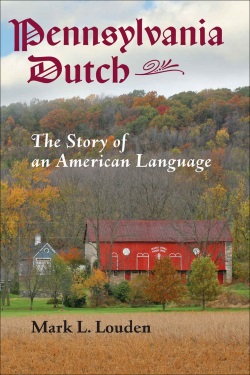
How? Simply leave a comment on this post.
We’ll draw a winner at random and announce it here next week.
Q-and-A with Mark Louden on Pennsylvania Dutch
Amish America: What is your background as far as Pennsylvania Dutch goes? How did you come to know the language, and what is your involvement with it today?
Mark Louden: Thirty-three years ago, in February of 1985, I visited an Amish church service for the first time. This was in upstate New York, where I was in graduate school. At that time I was looking for a spiritual home and curious about how the Amish lived out their faith.
I met a family who lived in the Romulus Amish community, and they invited me to church. Because I knew German, everyone assumed I could understand PA Dutch, so they only spoke that language to me, which was a great way to pick it up. About six months later, I met an Old Order Mennonite couple from the Penn Yan area and started attending services there, too.
Over the next three years, I became more and more involved in Amish and Old Order Mennonite communities in New York and in Lancaster, PA, where many families had moved from. I taught singing school for Old Order Mennonite youth for two summers in PA Dutch and also learned to lead the singing in Amish services.
In 1988, I moved to Austin, TX, to begin my career as a German professor and became involved with the Amish community that was at that time located near Gonzales. I moved onto a ranch in that community that was operated by an Amish family and lived there until I got my present job at the University of Wisconsin–Madison. I was eventually baptized at Milwaukee Mennonite Church, where I am a member today. Our church is all English-speaking, but I have close ties to many Amish communities here in Wisconsin and attend services from time to time.
Is Pennsylvania Dutch a dialect or language?
Mark: There are no scientific criteria to distinguish between “languages” and “dialects.” The labels are often arbitrary, depending on what speakers prefer. Contrary to popular stereotypes, there is no difference in complexity between languages and dialects, all are rich systems of communication that meet the needs of their users.
Most speakers of PA Dutch refer to it as a dialect of German because it is mainly spoken and not subject to prescriptive norms of usage as German and other standardized languages are. But in PA Dutch itself, there is no distinction made between languages and dialects; the word Schprooch is used to describe both. My personal preference is to call PA Dutch a language because of its independence from German.
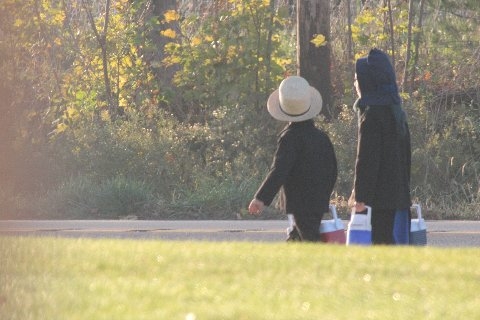
Why do we have this term “Dutch” for a German-rooted people and language? To what degree is the term “Pennsylvania German” used?
Mark: Both Pennsylvania Dutch and Pennsylvania German are correct. In the 18th century, when German speakers immigrated to Pennsylvania, the words Dutch and German were both used in English to refer to what we call “German” today. Dutch was the older and more familiar word, while German was a more formal borrowing from Latin.
The words Dutch and deutsch (‘German’) come from a common Germanic source, but Dutch is not derived from deutsch; they are linguistic cousins. The PA Dutch founding population was made up of mostly farmers and rural craftspeople, so Dutch was a more appropriate way to refer to them than German, the term preferred by city folk.
Today, Pennsylvania German is used mainly by scholars and others who want to stress the kinship between PA Dutch and German. Most speakers themselves prefer Pennsylvania Dutch.
What differences in PA Dutch exist across communities, for instance across Amish communities, or in usage by Amish vs. Mennonites?
Mark: All varieties of PA Dutch are completely mutually intelligible, but there are differences, mainly in vocabulary, depending on the region and the social or religious group to which a speaker belongs. Into the 20th century, most PA Dutch speakers were not Amish or Mennonites (“plain people” or “sectarians”), but “church people” (“nonsectarians”) whose ancestors were affiliated mainly with Lutheran and Reformed churches.
In Pennsylvania, plain people were concentrated more in Lancaster County, while church people were more numerous in Berks and Lehigh counties. Differences between these two groups reflect a general pattern of lexical variation between western and eastern counties in the PA Dutch heartland.
Within the plain community, there are some vocabulary differences between Amish and Mennonites, e.g., Wammes vs. Rock for ‘coat’, and among Amish, there are differences in the speech of Amish from or with ties to Lancaster County and “western” Amish, most of whom have a historic connection to Ohio.
One big difference between Lancaster variety and those spoken by Midwestern Amish is the pronunciation of the vowel in a word like deitsch (‘PA Dutch, German). In the Lancaster variety, the vowel rhymes with eye, while Midwestern Amish pronounce it more like the vowel in English badge.
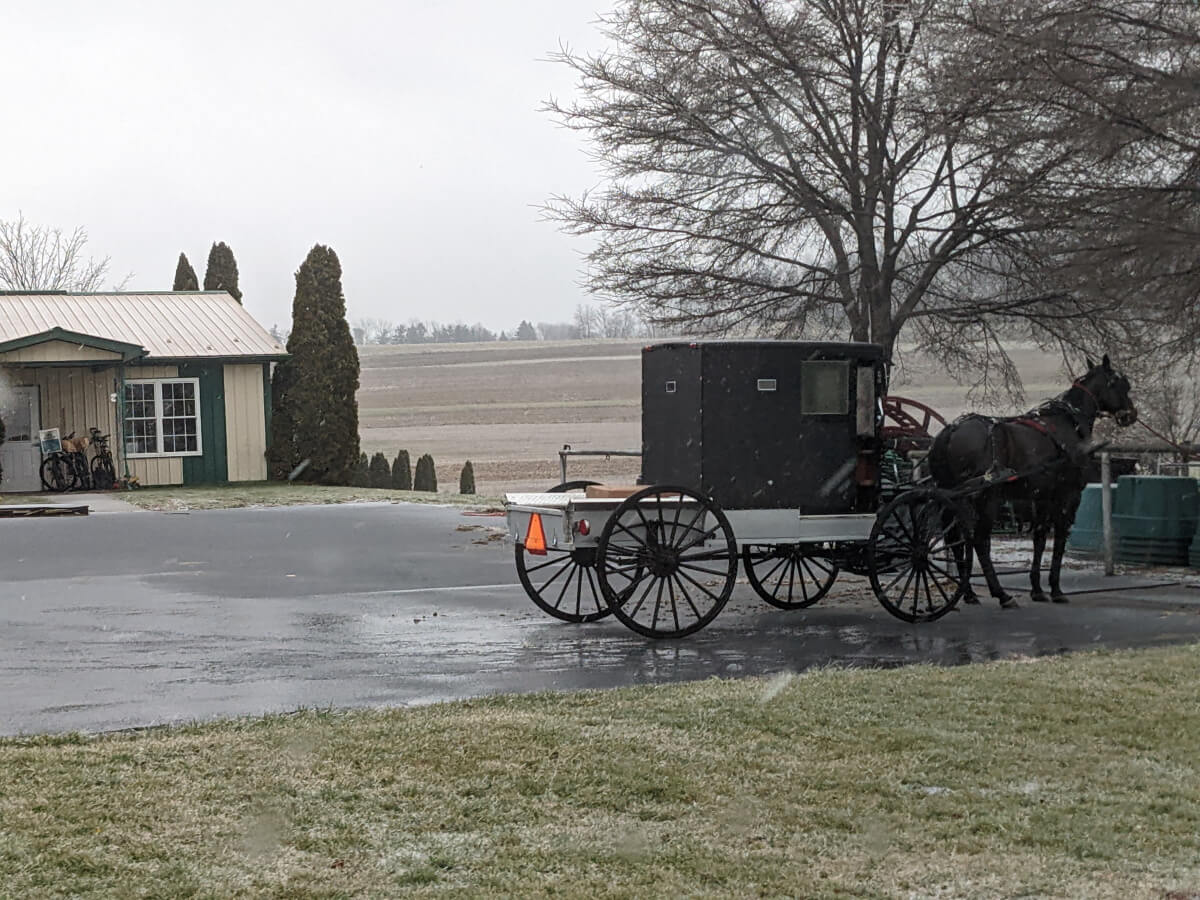
How well would an Amish PA Dutch speaker be understood in German-speaking areas of Europe?
Mark: That depends on the region. PA Dutch is most closely related to German dialects of the Palatinate (Pfalz), in southwestern Germany, so speakers of Palatine German (Pfälzisch) will recognize many similarities. But nearly three centuries of separation between PA Dutch speakers and Europe has meant that the languages on both sides of the Atlantic have diverged from one another quite a bit.
To what degree has English influenced this language?
Mark: From the start, essentially all PA Dutch speakers were bilingual to some degree, so English has left its imprint on the language, but pretty much just in the area of vocabulary.
The basic grammar of PA Dutch remains strongly Palatine German. There are four major types of English influence on PA Dutch vocabulary: words that are borrowed completely from English, e.g., Fens ‘fence’; partial borrowings, e.g., Kascheboi ‘cherry pie’ (Boi is pie adapted to PA Dutch pronunciation); Palatine German words that have shifted their meaning to match English, e.g., gleiche ’to like’; and literal translations of English words and expressions, e.g., uffgucke ’to look up (something)’.
Taking all four types of English influence together, still only about 20% of PA Dutch vocabulary is derived from or influenced by English. Standard German, for example, owes between a quarter to one-third of its words to other languages, especially French and Latin, so PA Dutch is actually a “purer” Germanic language than German is.
What is “Dutchified English”? Can you share a few examples?
Mark: Although PA Dutch speakers have always been bilingual, they often were more proficient in PA Dutch, which meant that they sometimes spoke English with a “Dutchy” accent.
For example, Joe would be pronounced like cho, zipper like sipper, eyes like ice, etc. And sometimes they would translate whole expressions from PA Dutch into English, such as Make the light out (Mach’s Licht aus).
So there is some truth to the phenomenon of “Dutchified English,” but a lot of what is passed off as such, especially in items sold to tourists, is fanciful, expressions like Throw Johnny down the stairs his hat. That sentences like this are made up is demonstrated by the fact that if you translate them back into PA Dutch, they are just as nonsensical. Today, the great majority of PA Dutch speakers are equally proficient in both English and PA Dutch.
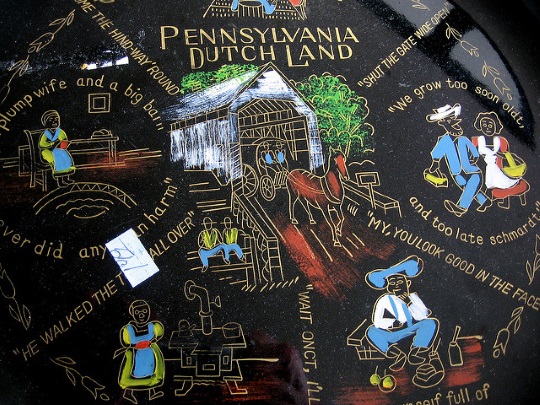
Is Pennsylvania Dutch written down? Among the Amish, isn’t the vast majority of correspondence carried out in English?
Mark: Going back to the early 1800s, native speakers of PA Dutch would on occasion write their language down, but literacy in PA Dutch has always been exceptional. This is mainly because the schools that PA Dutch children attended were either conducted in German or, since the later 1800s, English.
Amish and Old Order Mennonite parochial schools use English as the sole medium of instruction, and some teachers require that it be used at recess as well. Most schools also teach German as a subject, since that is the language of the Luther Bible and their devotional materials.
There is a fairly large body of literature in PA Dutch, especially from the second half of the 19th century and the early 20th, which was written mainly by nonsectarians. Some plain people today read and write PA Dutch actively, and in 2013, a PA Dutch translation of the Bible, Di Heilich Shrift, was completed.
We know how this language is thriving among Amish and Mennonites, but how many nonsectarians are speaking the language today? What caused this decline among non-Amish/Mennonites? Do you think it is going to die out among these people?
Mark: There are perhaps several thousand nonsectarian speakers of PA Dutch still living today, almost all of whom are in rural Pennsylvania, but almost all fluent speakers are elderly.
Continued use of PA Dutch has always correlated with a rural lifestyle, relatively limited social and geographic mobility, and especially marrying within the PA Dutch–speaking community. As far back as the early 1800s, PA Dutch speakers who moved into towns and cities, entered the professions, or married English monolinguals typically shifted to speaking English only. That trend accelerated among nonsectarians in the early 20th century, as all Americans became more mobile and the relative isolation of rural areas decreased.
That’s why there are many so-called heritage languages in the US like nonsectarian PA Dutch—such as Cajun French in Louisiana, and most Native American languages—that are in danger of losing their native speakers. The Old Orders very intentionally maintain a measure of social and geographic distance between themselves and the larger society, which enables them to “keep Dutch.” They are likely to be the sole speakers of PA Dutch within the next few decades.
What are one or two interesting or surprising things that people might not know about PA Dutch?
Mark: There is no other language in the world, large or small, that is growing faster than PA Dutch, which is due to the exponential growth of the Old Orders.
The only other languages in this small club are also spoken by highly traditional religious groups: Hutterisch/Hutterite German (Hutterites), Plautdietsch/Mennonite Low German (Old Colony Mennonites), Shwitzer/Amish Swiss German (Swiss Amish), and Yiddish (Hasidim). These groups are all similar to the Amish and Old Order Mennonites in having many children and children who make the decision as young adults to join or remain in their community.
Get a copy of Pennsylvania Dutch: The Story of an American Language
You can get a copy of Pennsylvania Dutch: The Story of an American Language via Mark’s website padutch.net, at a 30% discount (better than via Amazon). Here’s the link for that deal.
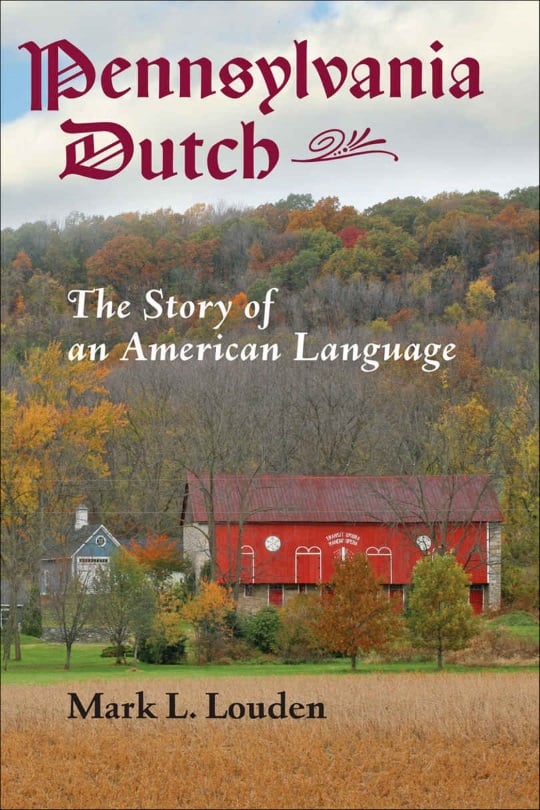


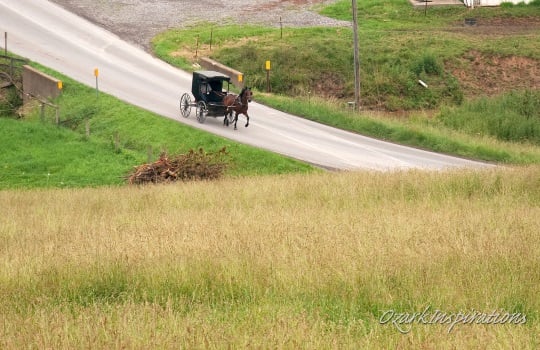
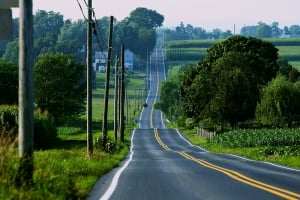

Gonzales
I met Mark as a teenager when we lived in Texas and attended the Old Order Amish church in Gonzales, TX.
He is like family to us!
Hi Becky! And your wedding in the fall of 1988 was the first Amish wedding I ever attended. Going on 30 years now! Blessings, Mark
Interesting
Sounds very informative and interesting. I too am amazed at the differences.
Have friends Amish and Old Order Mennonite.
A True American
The Amish are the purest of true Americans,they have been very impressive to me and a wonder my whole life.
PA Dutch, German, Swiss
Those are the family origins as,related to me by my parents.My Grandfather came to Toledo, OH from Lancaster,PA. My other relatives had beards and spoke “funny”as it sounded to me as a kid. Now I wish I could hear and learn more about what I didn’t understand. I tried to find info on the language. Visiting Ohio Amish country makes me feel at home. The language sound similar but not the same. I want to hear words said or explained.
Very interesting
I’d love to read this! I have picked up quite a bit over the years, as my Swartzentruber friends’ English isn’t the best, and of course the little children don’t speak it. (It can be very useful to arrive and be able to ask, “Wu ist dei Mamm? Ist sie em Haus?” Although the looks I sometimes get!)
Good for you, Erin! Keep learning phrases like that. That’s a nice gesture.
love this
I am very interested in the Amish. I read everything i can find on them. i just feel if we could all go back to the simpler ways of life, this world would be such a better place.
Great read
Thank you for posting. I have always wondered if a person who speaks German could communicate effectively in a Amish Community.
In answer to Jemima Schinnerer: Can Germans/ German speaker understand PA Dutch
What an interesting article! I surely would love read the book (and might anyway whether I win a copy or not).
Jemima: As a German ex-pat living in Ohio, I can honestly say that I have some issues understanding the local Amish. I can catch words here and there, and it is not very difficult for me to figure out written PA Dutch if I come across it (by sounding the words out in my head), but as a northern German, it poses a challenge to follow them when they talk among each other. Maybe southern Germans have less issues because PA Dutch sounds more like the southern German dialects than like the northern German Plattdeutsch, but that’s just an assumption.
Interesting article. I write Amish romances and find these types of articles informative.
Interesting
Very interesting to learn the origins. I have read a few different books on learning the language.
Question for Mark
Thank you, very informative. My question is while our Amish friends speak English when we interact with them, do they strictly speak Dutch to each other when there are no “English” folk around?
Good question, Sue. Yes, Amish and other PA Dutch speakers typically use English in social settings where English-monolinguals are present, for the sake of politeness. In Amish-only settings, PA Dutch is preferred. Mark
Young Amish speaking among themselves
I have observed and overheard some Amish young people, probably late teens or early twenties, speaking English among themselves. I think that it’s likely that some of them are working in an English environment. It may be interesting to see what happens as they grow older, marry and have children.
Deep history & tradition
I wish more people knew the history and story of Pennsylvania Dutch (language). There is SO much for people to learn, besides the language itself. It’s not just another language, it goes much farther than that. The variations from state to state, community to community make it even more unique by many more than just the Amish.
question?
Mark, would you say that the large majority of Amish (older generations) are able to speak and understand English well enough in situations like Dr. office or hospital settings? Just wondering what percentage might need an interpreter like say someone visiting our country from Spanish, French, or other foreign country.
An answer to "Question"
Barbara, it’s interesting to note that at least one hospital system in the Lancaster PA area has added PA Dutch interpreters – see http://www.witf.org/news/2018/02/midstate-hospitals-add-interpreters-for-pennsylvania-dutch.php for more.
Yes, that is an important development in health care serving Amish. All Amish adults speak English and kids begin learning it when they start school, so interpreters are mainly necessary for pre-schoolers. But using PA Dutch for older kids and others can be reassuring in what are often stressful situations. It’s important to keep in mind that even English-monolinguals often have difficulty with technical language of any kind, medical, legal, etc. A few years ago I was called upon to serve as a court interpreter in a case involving a Swartzentruber Amish family. At times, I had to ask the doctor who was testifying to clarify what he meant in English before I could render it into PA Dutch.
Learning English
Barbara Long, I grew up in the Amish community near Ashland, Ohio. When I went to school there, we were required to speak english in class every friday, all day long. That helped me a lot after I left the Amish.
I have also been blessed
When living in Indiana I was blessed that my parents had taught me German. The Amish were very welcoming. We shared our farming experiences. A Decon invited me to eat with his family, and shared his bible with me. Loved your interview. Will be looking forward to reading your book. Best wishes, Carl
The Story of an American Language
My late father contributed quite a bit of material and communicated frequently with C. Richard Beam when he was working on his PA Dutch dictionary.
In Ontario, Mennonites have yet another word for a wammes or rock (coat); we call it a kittel. It is interesting to note that some words are regional, with both Amish and Mennonites in Ontario using a Pa German word that is not used or used differently by both Amish and Mennonites in American communities. Other words may be used differently by Amish than by Mennonites.
PA Dutch speaking people do speak mostly that language among themselves but it does vary between communities and even within communities. We see lots of instances where the parents speak English with each other, but Pa. Dutch to the children. They realize that they were close to losing the language so they put in efforts to keep the next generation bilingual as well.
Gross Dank, Osiah! Dei Daed waar der Isaac, gel? Ich denk en latt vun sei Schreiwes.
This has been quite informative!
I live in Mifflin County, PA, which is home to a significant Nebraska Amish community. I’ve met a few of the younger people for whom English is definitely a second language! Thanks for this discussion, Mark – it taught me a lot.
Thanks, Bill. Yes, the Nebraska Amish and the Swartzentrubers are the most traditional affiliations, meaning that they generally have less regular contact with non-PA Dutch speakers. That is sometimes reflected in their English.
very interesting article. i would love to win this book to be able to educate myself further. thank you for the opportunity.
Forms of address
Can any of you tell me how to address an Amish man or woman? In German, I’d use Herr or Frau; what’s the corresponding form in PA Dutch?
Thanks!
PA Dutch lacks words for Mr., Mrs., Ms., and Miss, so the English terms of address are used. PA Dutch also differs from German in that it does not distinguish between informal and formal words for “you” (du vs. Sie in German). Everybody is addressed as “du” (and “dihr” with multiple people).
Fascinating
I have always been fascinated by languages. While I majored in French and English in college, I have also taken some German and some Spanish. Several years ago my husband and I participated in a week-long program comparing the Amish and Mennonites and visited with both groups of people. I would love to read your book.
The Plain are humble, church loving people
I have been interested in the Amish lifestyle ever since I can remember. I live in SW Michigan and so have been to the Indiana area many, many times. Always have the Amish been kind, thoughtful, and always willing to answer questions when I have any. Their lifestyle and language is also very interesting to me as they have Gemanic reading and singing. May God bless each and every one of the Amish always.
PA Dutch Dictionary
Hi, I love reading about the Amish and have visited Holmes and Wayne counties in Ohio many times. I looked for a PA Dutch/English dictionary several years ago in a bookstore in Berlin, Ohio, but couldn’t find one. In the many Amish Christian books I have read the authors usually put a translation section in the front or back for PA Dutch words they sprinkle throughout the book, but I would love a basic grammar/conjugation guide. I have a small lomgarm quilting business I have named The Quilting Frolic in honor of the Amish tradition of working together and making it an occasion for fun. (Not advertising myself, just sayin’). Another thing I admire is their sense of community and that they stay close to their extended family, whereas I have cousins, aunts, and uncles I haven’t seen in years. I would love an Amish pen pal but don’t know if that is allowed. Thanks for a great article!
Here is a website where you can purchase some good, inexpensive materials to help you learn PA Dutch: https://www.deitshbooks.com/. The author is a native speaker from eastern Ohio.
Many Thanks
Thank you do much for this interview. The book sounds very interesting indeed! While not a member, I grew up in a Old German Baptist Brethren district. My many GB friends and neighbors had a profound influence on my life. As a result, I find many answers to life’s questions in “plain” living.
Enlightening!
While my paternal ancestors came from Berks County, I have been fascinated by the development of languages and dialects in the United States. Southern Appalachia has its own story and it’s interesting to see the how speech evolves from area to area as populations move. I look forward to reading Mr.Laudon’s book.
Wow!
Mark Louden’s review of PA Dutch is wonderfully comprehensive and easy to read, a must for anyone visiting or living near the Amish, as we do. My wife’s grandmother was Amish, many of our relatives are Mennonite, and I’ve referred to many of these people and ideas on my website: http://e-gen.info .
Swiss German
Years ago we were in Lancaster, PA. My Swiss husband was able to understand everything spoken by the Amish, and they understood him as well. I have lived in Switzerland for the last 10 years, and find that Swiss German is much easier to understand than High German. It sounds a lot closer to English and the grammar is easier. About 5 years ago, I remember coming across a video on youtube with an older Amish lady singing a song her father had taught her. She is singing in Swiss German. Here is the link for her video. It is very sweet. https://www.youtube.com/watch?v=kIC0TaYHu-Y
PA Dutch
My paternal grandfather who affiliated as a Methodist unfortunately died when I was a young girl. He used to tease me and tell me that we were Pennsylvania Dutch, and then would speak just a few words that must have been PA Dutch and say what it meant, but I cannot remember them at all. I thought we were Dutch, as in Holland. As I grew up, I learned what he meant was he came from Amish-Mennonite heritage. I wish he had lived long enough to ask him about his upbringing. My great grandmother, who I remember and have pictures of, dressed as a very Old Order Amish woman, but I still do not know if she was Amish or Amish-Mennonite. People sometimes don’t realize how important it is to talk about their heritage and pass it on.
Mark Louden on Penn Dutch
Thank you for sharing. I always learn so much with these posts! 🙂
The Story of an American Language
Very interesting article and a book worth reading, especially if you interact with the Amish. I live in a midcoast community in Maine that has seen the arrival of a dozen Amish families over the last year and they are Swartzentrubers. Our young Amish neighbors are very nice and friendly and fluent in English. It is wonderful to see these folks come and help preserve the nature of this rural farming community.
The Story of an American Language
I found Mark’s interview fascinating and both educational and informative. It brings clarity to understanding the foundational language and the variants in each order. Although an avid follower of the Amish, I did not know their schools taught in English. It did bring up a similar instance of language when I attended prep school. We were required to speak Latin at recess!
Thanks for this great interview. It would be great to do more of these.
And there are others too
I never realized that there are other non-Amish who speak the language on a regular basis.
Very interesting.
Thanks
Glad to learn --
— that US academia has a spot for you and your work.
Me too :-). I’ve been fortunate to be here at the University of Wisconsin, which is guided by what is known as the Wisconsin Idea, the idea that the work of the university should have a positive impact on local communities. Public outreach is considered a high priority here.
Happy to Read and Learn
This is a most interesting epistle to read and learn about the differences in dialects and German.
I hail from Vienna, Austria so German is not new to me. PA Dutch is. My Mennonite brethren have an occasional Dutch or German speaker among them. I find simple German explains most of the differences.
I love to read these types of articles.
Very interesting reading as, I am sure, the book would be also. Please enter me in the drawing. I have enjoyed visiting different Amish areas over the years and enjoy talking with the Amish folks. I have met some very nice folks and been fortunate enough to be invited to their home. We have visited them several times and always enjoy great conversation and fellowship.
No scientific differentiation?
This is a fascinating subject indeed! I stumbled over one thing though: Back in the day when I studied German at the university, we were taught that there is a scientific differentiation between standard and dialect: If the dialect was sufficient to meet the needs of a speaker in all areas of (verbal) life, both orally and written, it would be considered a dialect no longer (and hence was eligible for protection status if spoken by a minority, such a Saterfriesisch in northern Germany/ the norther Netherlands). If, on the other hand, the speaker had to revert to the standard language in order to express himself in certain areas of life (business, science etc.), the dialect was a true dialect. Now I am wondering if in the years between my studies in the 1990s and today, things have changed in this regard.
Well, in a lot of college courses, answers to complex questions can be oversimplified. Going back to the beginnings of modern linguistic science, which emerged in the late nineteenth century, linguists have recognized that the labels attached to what people speak are not definable according to clear-cut criteria. Here is a link to a really well written article by a linguist at Columbia University, John McWhorter, on the language/dialect distinction: https://www.theatlantic.com/international/archive/2016/01/difference-between-language-dialect/424704/.
Thank you for the link, interesting indeed.
Back in the day, the course revolved around the plight of “dying” languages that could not get support to assist their upkeep because they weren’t actually considered languages, but “only” dialects. Of course, the concern was that with the language/dialect, the identity of the people who spoke it would also fade away.
Maybe the definition that was taught in this context was something to be considered in a court of law, rather than among linguists proper.
You’ve put your finger on something very important. Language endangerment is a very timely topic still today. Of the roughly 7,000 languages in the world, the vast majority are spoken by small minority populations (like PA Dutch). And the sad prediction is that at least half of these languages will have lost their native speakers by the turn of the next century. It is definitely true that when a linguistic variety is officially recognized as a “language,” its chances of receiving some kind of official support from governments are increased. In Europe, there is an official treaty called the European Charter for Regional and Minority Languages, whose aim is to support endangered languages within Europe. Against the grim backdrop of global language endangerment, the success of PA Dutch is even more striking. This is a language spoken by a very small (but growing) population; it has limited official recognition and no governmental support to speak of; most of its speakers don’t read or write it; and it has never been regarded by outsiders (and not a few insiders) with much respect. And here it is, thriving in the middle of an overwhelmingly English-speaking society!
Quite so, and very encouraging to see PA Dutch so alive and well!
Informative!
Thanks for sharing this! I had heard some people say their ancestors were ” Pennsylvania Dutch” from Pennsylvania but not Amish and I wondered what that meant. Now I think I know. 🙂
Also, Mark, hello from the Penn Yan area! I wonder, in Wisconsin have you ever gotten to know any Amish churches in the area of Markesan and Cambria?
Hello, Jan! Funny you should mention it, I am headed to that community tomorrow. It’s known as the Kingston settlement, which is the second largest in WI (after Cashton). I’m on a newly formed board of mainly Amish folks that works on advocacy for the B&W treatment protocol for burns and severe wounds. The chair of the committee is a close friend of mine in Kingston. Greetings back to Yates County!
Wisconsin
Wow! Yes, my friend helps with that burn treatment center. They were going to move to Lengby, Minnesota, but I haven’t heard from her in a while and I moved, myself, so I’m really hoping we didn’t lose contact… I would love to know more about that settlement but haven’t been able to find much online. Thank you for the reply! Enjoy your trip tomorrow. If you see a Rachel and Wilbur, please tell them Jan will try writing again soon. 🙂
Will do! 🙂
Interesting people and language
I enjoy reading anything on the Amish people. Being raised in York County PA I am very interested in hearing more. My grandfather could speak PA Dutch as he called it. I sure hope I win this book.
Terry Berger
As a native speaker I would be very interested in a copy of this book. It’s always interesting to hear another perspective on our language and culture.
PA Dutch was my first language
I enjoyed Mark’s interview and comments about PA Dutch. I grew up in Holmes Co. Ohio with PA Dutch as my first language. But now, living in Vermont, I seldom have the opportunity to speak it. I found PA Dutch vocabulary and sentence structure very useful in the study of German in college.
Intrigued
Languages are amazing, and other than English (American version), always are a challenge to me. Growing up in a Polish/German/Spanish-speaking neighborhood (and having taken 2 yrs. of French in high school), I only understand a few words of each language. At my age (65+), I doubt I could successfully learn ANY new language. PA Dutch, I’m afraid, might as well be Greek to me (apologies to my good friend of Greek ancestry and her family both here and in the Old Country)!
Thank you for the opportunity to win a copy of your book, Mr. Louden.
Alice Mary (from Illinois)
Love the Simplicity
I have been a fan of the Amish and Mennonites for as long as I can remember. I have 4 rows of Amish writers on my bookshelf at home. I love the simplicity of their lifestyle and the way they all come together as a community and help each other. No one feels lonely there! I look forward to being able to read this book.
Hooray for multilingualism!
I would love to win a copy of this book! I’ve always wanted to learn Pennsylvania Dutch (and “Swiss”, for that matter), and learning about it is also very interesting. Thank you, Mark, for the link to deitshbooks.com. I’m looking forward to giving them some of my business.
Mark's Q&A
Since I, my sisters and brother were children my mom has told us that her grandfather, our great grandfather knew some PA Dutch and he a little jingle that he would sing but he wouldn’t tell the children what it meant she has always thought it was because it wasn’t for little ears. I always thought it was our native language from Germany which is one country that some of my family came from. I was so interested in what you had to say about the PA Dutch because when I found out it was the Amish native language Mark I wondered about my great grandfather knowing some of it. Your article was great and informative. I would like to read the book. I love finding out the Amish. I admire them and especially how they have kept to their ways as much as possible after three hundred years. They appear to be the only group left that have.
The Q&A very informative
Since I, my sisters and brother were children my mom has told us us about her grandfather knowing some PA Dutch and he had a little jingle that he would sing but he wouldn’t tell the children what it meant she has always thought it wasn’t for little ears. I always thought it was our native language from Germany which is one country that some of my family came from. I was so interested in what you had to say about the PA Dutch because when I found out it was the Amish native language Mark I wondered about my great grandfather knowing some of it. Your article was great and informative. I was so interested in what you had to say about the PA Dutch because when I found out it was the Amish native language Mark I wondered about my great grandfather knowing some of it. Your article was great and informative. I would like to read the book. I love finding out about the Amish. I admire them and especially how they have kept to their ways as much as possible after three hundred years. They appear to be the only group left that has.
Evansville/Albany Amish
Hi Mark,
I grew up in Evansville, Wisconsin (just south of Madison) and we had several Amish families living nearby. Always enjoyed seeing them at the grocery stores, etc. Wonder if there are still Amish living near there?
Hi Debbie, Yes, you bet. The community, known as the Brodhead settlement, has just grown to two church districts. Not huge, but definitely thriving.
Great article!
I was raised near Aylmer, Ontario, Canada (where I acquired an interest in the Amish) and Dutch (Nederlands, not PA!) was my first language since I was born in the Netherlands. At school I took German for 3 years. I love languages & since retirement I have been trying to learn more languages: my wife & I spent 3 weeks In South Africa a few years ago and I have acquired a working knowledge of Afrikaans. Currently I am taking classes in Yiddish.
Thanks for a fascinating article!
If I don’t win Dr. Louden’s book, I definitely want to get a copy! When is the draw?
I would also be interested in finding out where I could get songs in Pennsylvania Dutch, since I love to sing and play different musical instruments. In addition to the words, I would like the melodies along with the chords.
Thanks once again for a great article!
Dank je, Willem! For great PA Dutch (and other) music, you have to check out my friend John Schmid, who I bet is familiar to readers of this blog: http://www.johnschmid.org/music.html.
Dank je wel, Willem! For great PA Dutch (and other) music, you have to check out my friend John Schmid, who I bet is familiar to readers of this blog: http://www.johnschmid.org/music.html.
I have always been fascinated with the Amish ways of life and I love learning more about them every chance I get. This book sounds like a wonderful read that will help me to better understand them.
thanks
Hi Erik,
Thanks for the interview with Mark Louden and the blog in general. I appreciate your work in presenting a balanced and nuanced view of the Amish in America. I’m a lurker via RSS subscription, but I can’t resist the chance at the book!
Best,
Steve
Steve, I appreciate that! I’m glad you commented, it’s nice to know who’s out there reading:) And I don’t blame you for jumping in on this contest, I am not finished with Mark’s book yet but have really enjoyed it.
Useful Scholarship
With all the odd stuff that’s published by the Academy, it’s refreshing to see a book that’s useful for those of us tracing our German ancestors.
Warmest Regards,
JB
I enjoyed the article
I grew up speaking PA Dutch but by the time I started to school I was able to speak the English language. In the community I live a lot of the Amish people have jobs that they interact with people all day long that do not speak PA Dutch. For that reason I often hear them in conversations when everybody can speak PA Dutch but they are speaking English.
Thanks
Noah
the explanation
I always wondered why all of my non-Amish grandparents spoke Pa Dutch. Thanks for explaining that it is common among Lutheran farm folk in Lehigh Co. That is who they were, here for generations, all with with German surnames.
Lebanon Co. was once part of Lancaster Co., PA
This is where my mother grew up. She is 92 years old and has come down from the German speaking Swiss who came here in the 1700’s.When I read your article, I realized I could reap more information from your book to share with my mother.Thank you for your research. There is so much to learn from this people group and their way of life.